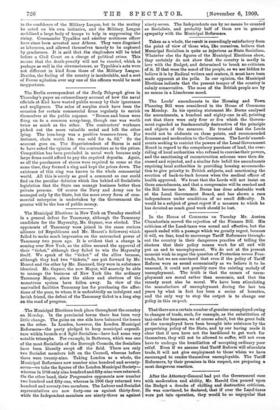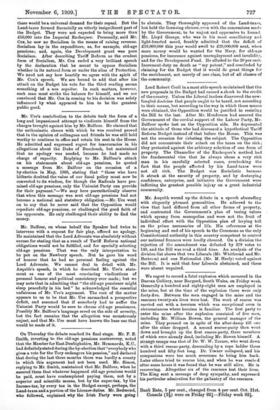After the Attorney-General had put the Government case with moderation
and ability, Mr. Harold Cox poured upon the Budget a douche of chilling and destructiie criticism. Ile 'was convinced, he declared, that if ever the Lan.d-taxes were Put into operation, they would b.:, so unpoptilai that there would be a universal demand for their repeal. But the Land-taxes formed financially an utterly insignificant part of the Budget. They were not expected to bring more than 2.50,000 into the Imperial Exchequer. Personally, said Mr. Cox, he saw no Socialism in the means of raising revenue. Socialism lay in the expenditure, as, for example, old-age pensions ; and, again, the Development grant was pure Socialism. After describing Tariff Reform as the crudest form of Socialism, Mr. Cox ended a very brilliant speech by the declaration that he meant to oppose Socialism whether in its natural form or under the alias of Protection. We need not say how heartily we agree with the spirit of Mr. Cox's speech. We are bound to add that after his attack on the Budget his vote for the third reading seems something of a non sequitur. In such matters, however, each man must strike the balance for himself, and we are convinced that Mr. Cox in coming to his decision was solely influenced by what appeared to him to be the greatest public good.































































 Previous page
Previous page